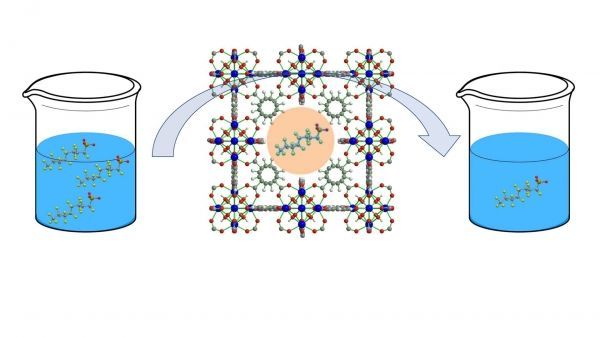In a study in the American Chemical Society journal ACS Sustainable Chemistry and Engineering, Rice University researchers Michael Wong, Chelsea Clark and colleagues showed that a highly porous, Swiss cheese-like nanomaterial called a metal-organic framework (MOF) was faster at soaking up PFOS from polluted water, and that it could hold more PFOS, when additional nanometer-sized holes (“defects”) were built into the MOF.
PFOS was used for decades in consumer products like stain-resistant fabrics and is the best-known member of a family of toxic chemicals called “per- and polyfluoroalkyl substances” (PFAS), which the Environmental Protection Agency (EPA) describes as “very persistent in the environment and in the human body — meaning they don’t break down and they can accumulate over time.”
Read more at Rice University
Illustration: By introducing defects into the structure of a metal-organic framework, or MOF, Rice University researchers found they could increase the amount of toxic pollutants called perfluorooctanesulfonic acid (PFOS) that the MOF could hold, as well as the speed with which it could adsorb them from heavily polluted industrial wastewater. Illustration courtesy of Chelsea Clark


